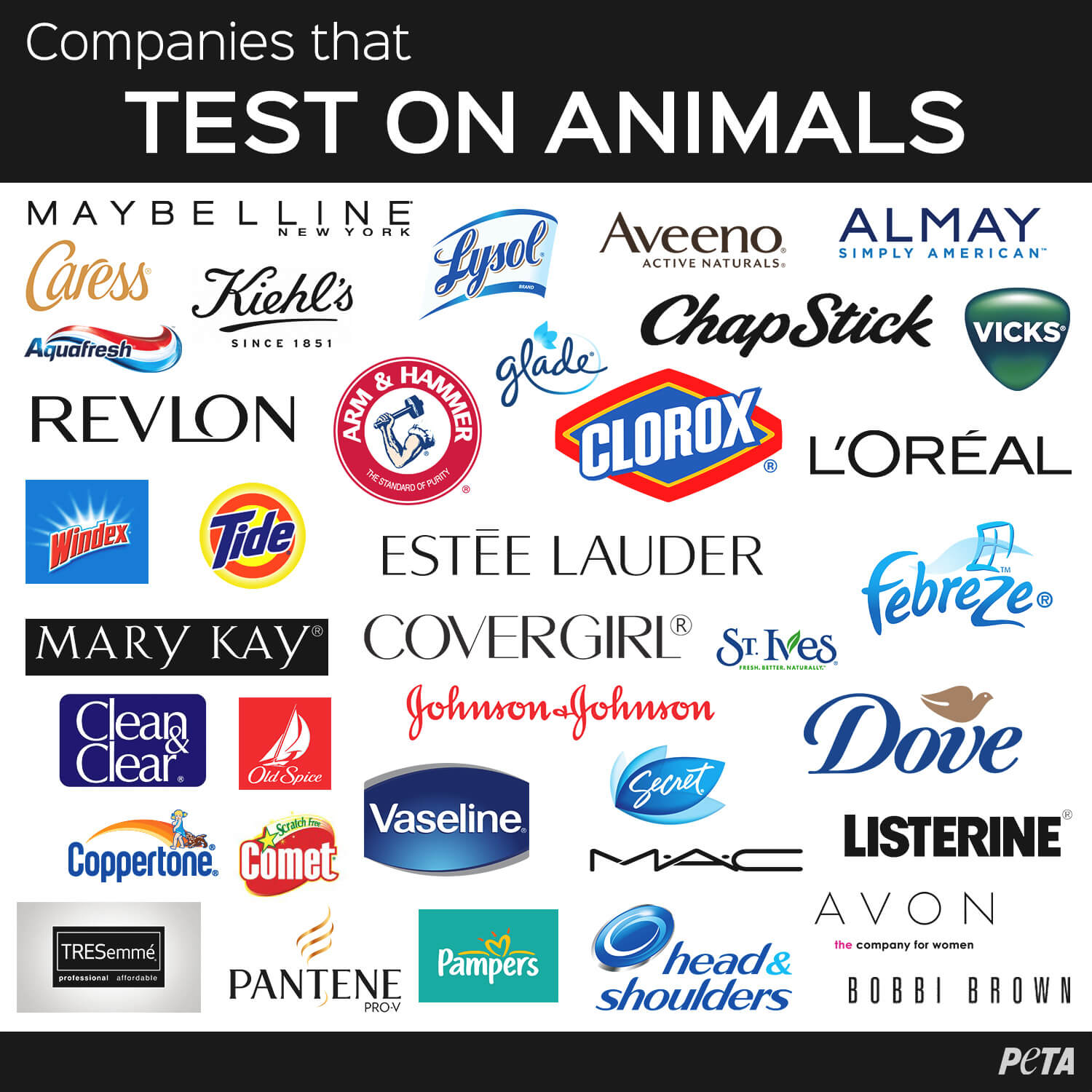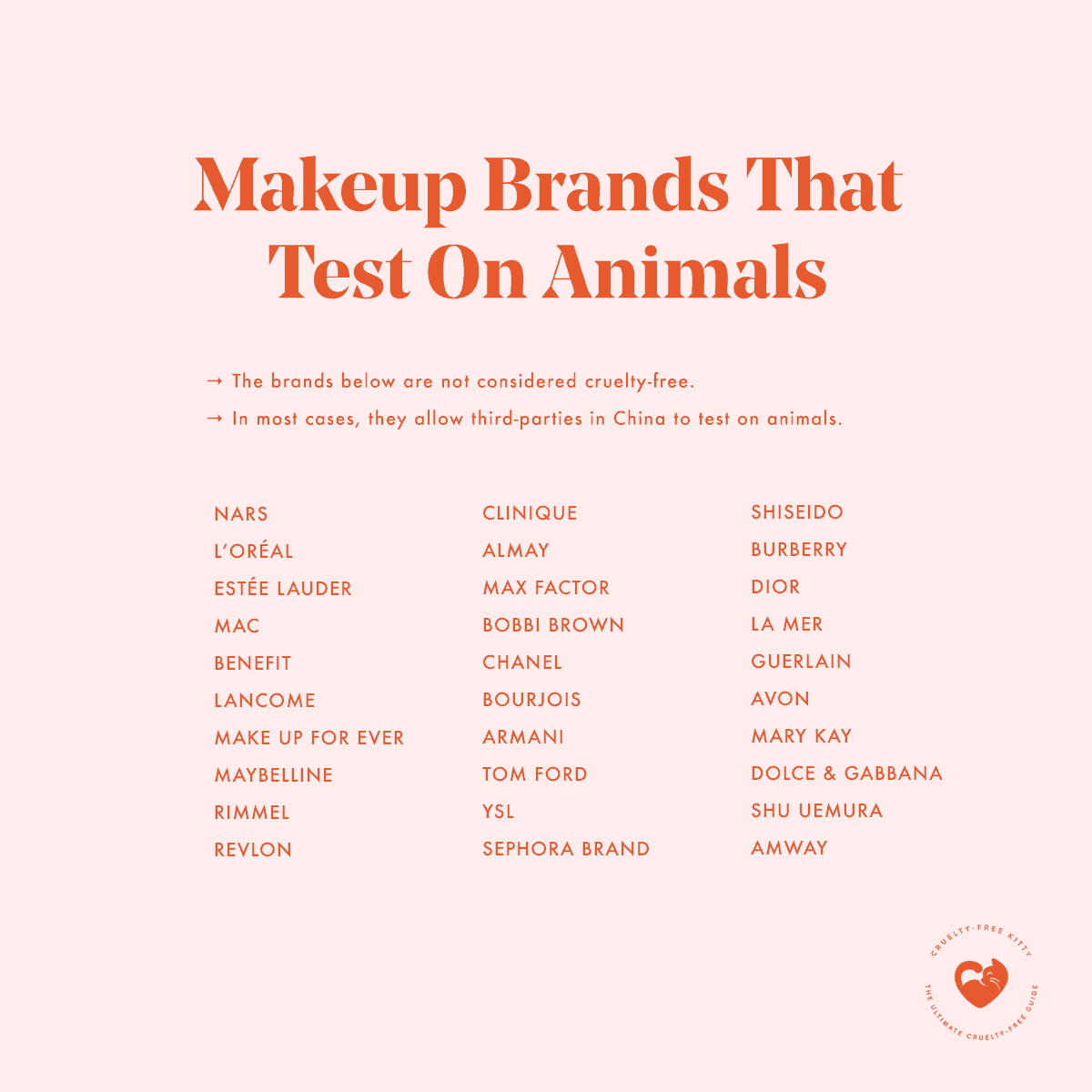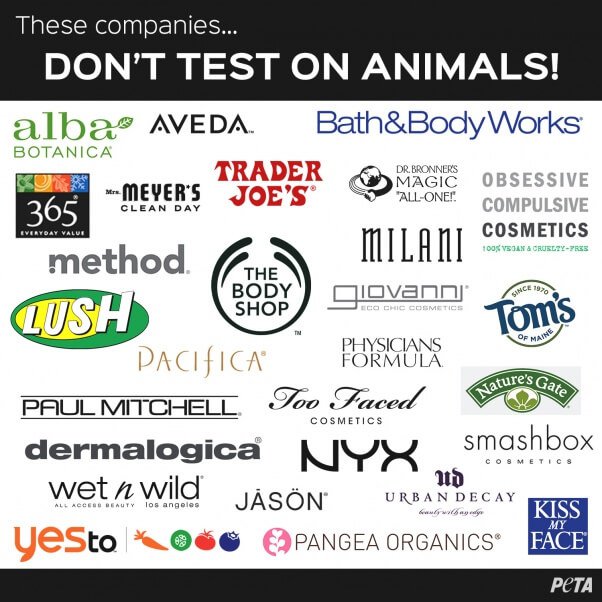Navigating the Labyrinth: A Guide to Makeup Brands and Animal Testing
Related Articles: Navigating the Labyrinth: A Guide to Makeup Brands and Animal Testing
Introduction
In this auspicious occasion, we are delighted to delve into the intriguing topic related to Navigating the Labyrinth: A Guide to Makeup Brands and Animal Testing. Let’s weave interesting information and offer fresh perspectives to the readers.
Table of Content
Navigating the Labyrinth: A Guide to Makeup Brands and Animal Testing

The beauty industry, with its allure of enhancing natural beauty, often faces ethical scrutiny. One particularly contentious issue is animal testing, a practice that involves using animals to assess the safety and efficacy of cosmetic products. While many brands have embraced cruelty-free practices, a significant number still engage in this controversial method, raising concerns about animal welfare and the potential for misleading results.
This article provides a comprehensive overview of the complex landscape of animal testing in the cosmetics industry. It delves into the reasons behind this practice, examines the ethical implications, and highlights brands that continue to engage in animal testing. Moreover, it offers guidance on how to identify cruelty-free alternatives, empowering consumers to make informed choices.
Understanding the Rationale Behind Animal Testing in Cosmetics
Animal testing in cosmetics stems from a desire to ensure product safety. Traditionally, regulatory bodies, particularly in certain countries, have mandated animal testing for cosmetic products to assess potential toxicity, irritation, and allergenicity. This practice has been rooted in the belief that animal models provide a reliable indicator of how humans might react to the same substances.
However, the scientific validity of animal testing for cosmetics has been increasingly questioned. Animal models, while offering insights into biological processes, often fail to accurately predict human responses due to fundamental physiological differences. Furthermore, animal testing can be unreliable, leading to inaccurate results and potential misinterpretations.
The Ethical Dilemma: Animal Welfare and the Pursuit of Beauty
The ethical implications of animal testing in cosmetics are undeniable. Animals, particularly those used in laboratory settings, are often subjected to painful procedures, confinement, and stress. This raises serious concerns about animal welfare and the inherent cruelty associated with these practices.
Proponents of animal testing argue that it is necessary to ensure consumer safety and prevent potential harm. They contend that animal testing provides valuable data that cannot be obtained through alternative methods. However, critics argue that the ethical costs of animal testing outweigh the benefits, particularly given the limitations of animal models and the availability of more humane alternatives.
The Rise of Cruelty-Free Cosmetics: A Growing Trend
Recognizing the ethical concerns surrounding animal testing, a growing number of consumers are actively seeking out cruelty-free cosmetics. This shift in consumer preference has spurred a surge in the development and availability of cruelty-free products.
Many brands have embraced cruelty-free practices, signifying their commitment to ethical sourcing and production. These brands often adhere to strict guidelines, ensuring that neither their products nor their ingredients are tested on animals. They may also choose to be certified by organizations that independently verify their cruelty-free status.
Navigating the Labyrinth: Identifying Cruelty-Free Brands
Identifying cruelty-free brands can be challenging, as regulations and labeling practices vary across countries. However, several resources can help consumers make informed choices.
-
Leaping Bunny Certification: The Leaping Bunny program is a globally recognized certification that signifies a company’s commitment to cruelty-free practices. This certification requires brands to meet strict criteria, including a ban on animal testing for both finished products and ingredients.
-
PETA’s Cruelty-Free List: The People for the Ethical Treatment of Animals (PETA) maintains a comprehensive list of cruelty-free brands, regularly updated to reflect the latest industry practices.
-
Brand Websites and Packaging: Many cruelty-free brands prominently display their commitment to ethical practices on their websites and product packaging. Look for labels, statements, or certifications that indicate their cruelty-free status.
Understanding the Global Landscape of Animal Testing Regulations
The regulatory landscape regarding animal testing for cosmetics varies significantly across the globe. Some countries, such as the European Union, have banned animal testing for cosmetics entirely. Others, like the United States, still allow animal testing for certain products, although there is growing pressure to adopt stricter regulations.
A Closer Look at Brands That Still Test on Animals
While the trend towards cruelty-free cosmetics is encouraging, a significant number of brands continue to engage in animal testing. This is often due to regulatory requirements in certain countries, particularly in China, where animal testing is mandatory for imported cosmetics.
Key Points to Consider When Choosing Cruelty-Free Cosmetics:
-
Research thoroughly: Don’t solely rely on claims made by brands. Consult reputable resources like the Leaping Bunny program and PETA’s Cruelty-Free list for verification.
-
Pay attention to labeling: Look for certifications and statements that indicate a brand’s commitment to cruelty-free practices.
-
Be aware of global regulations: Remember that some countries still require animal testing for cosmetics.
-
Support cruelty-free brands: Choose brands that prioritize ethical sourcing and production practices.
FAQs About Animal Testing in Cosmetics
1. Is animal testing still legal for cosmetics in the United States?
Yes, animal testing for cosmetics is still legal in the United States. However, there is increasing pressure to ban this practice, and several states have already enacted legislation to restrict or prohibit it.
2. What are the main arguments against animal testing for cosmetics?
The main arguments against animal testing for cosmetics include the ethical concerns surrounding animal welfare, the scientific limitations of animal models, and the availability of alternative methods.
3. What are the alternatives to animal testing for cosmetics?
Alternatives to animal testing include in vitro methods, human cell cultures, computer modeling, and advanced imaging techniques. These methods are considered more ethical and scientifically reliable.
4. How can I be sure that a brand is truly cruelty-free?
The most reliable way to ensure that a brand is truly cruelty-free is to check for reputable certifications like the Leaping Bunny program. Additionally, consult resources like PETA’s Cruelty-Free list for verification.
5. What is the role of consumers in promoting cruelty-free cosmetics?
Consumers play a crucial role in promoting cruelty-free cosmetics by making informed choices, supporting brands that prioritize ethical practices, and advocating for stricter regulations.
Tips for Choosing Cruelty-Free Makeup Brands
-
Research thoroughly: Before purchasing a product, research the brand’s stance on animal testing. Consult reputable sources like the Leaping Bunny program and PETA’s Cruelty-Free list.
-
Look for certifications: Seek out brands that are certified by organizations like the Leaping Bunny program, which verifies their cruelty-free practices.
-
Check the brand’s website: Many cruelty-free brands prominently display their commitment to ethical sourcing and production practices on their websites.
-
Read product packaging: Look for labels, statements, or certifications that indicate a brand’s cruelty-free status.
-
Support cruelty-free brands: By choosing cruelty-free brands, consumers can send a strong message to the industry that ethical practices are important.
Conclusion
The issue of animal testing in cosmetics is complex and multifaceted. While progress has been made in promoting cruelty-free practices, a significant number of brands still engage in this controversial method. Consumers have a vital role to play in driving change by making informed choices, supporting ethical brands, and advocating for stricter regulations. By embracing cruelty-free cosmetics, individuals can contribute to a more humane and sustainable beauty industry.


/GettyImages-1316412895-c10088ce59774d329891a246daa68dda.jpg)





Closure
Thus, we hope this article has provided valuable insights into Navigating the Labyrinth: A Guide to Makeup Brands and Animal Testing. We appreciate your attention to our article. See you in our next article!